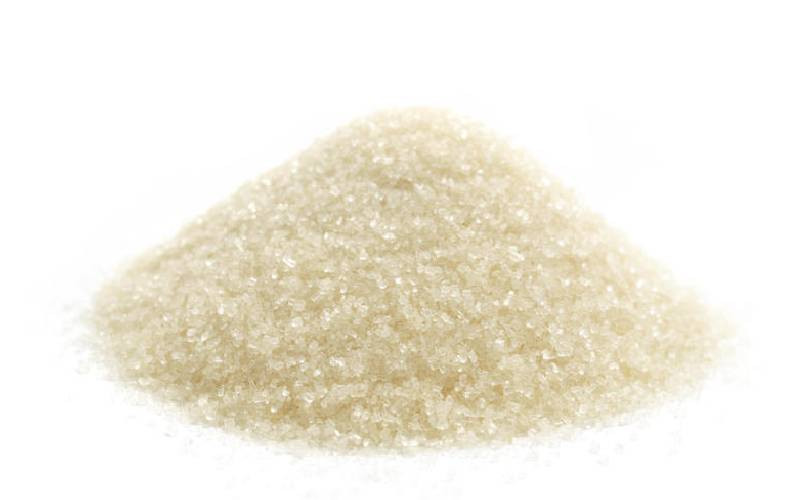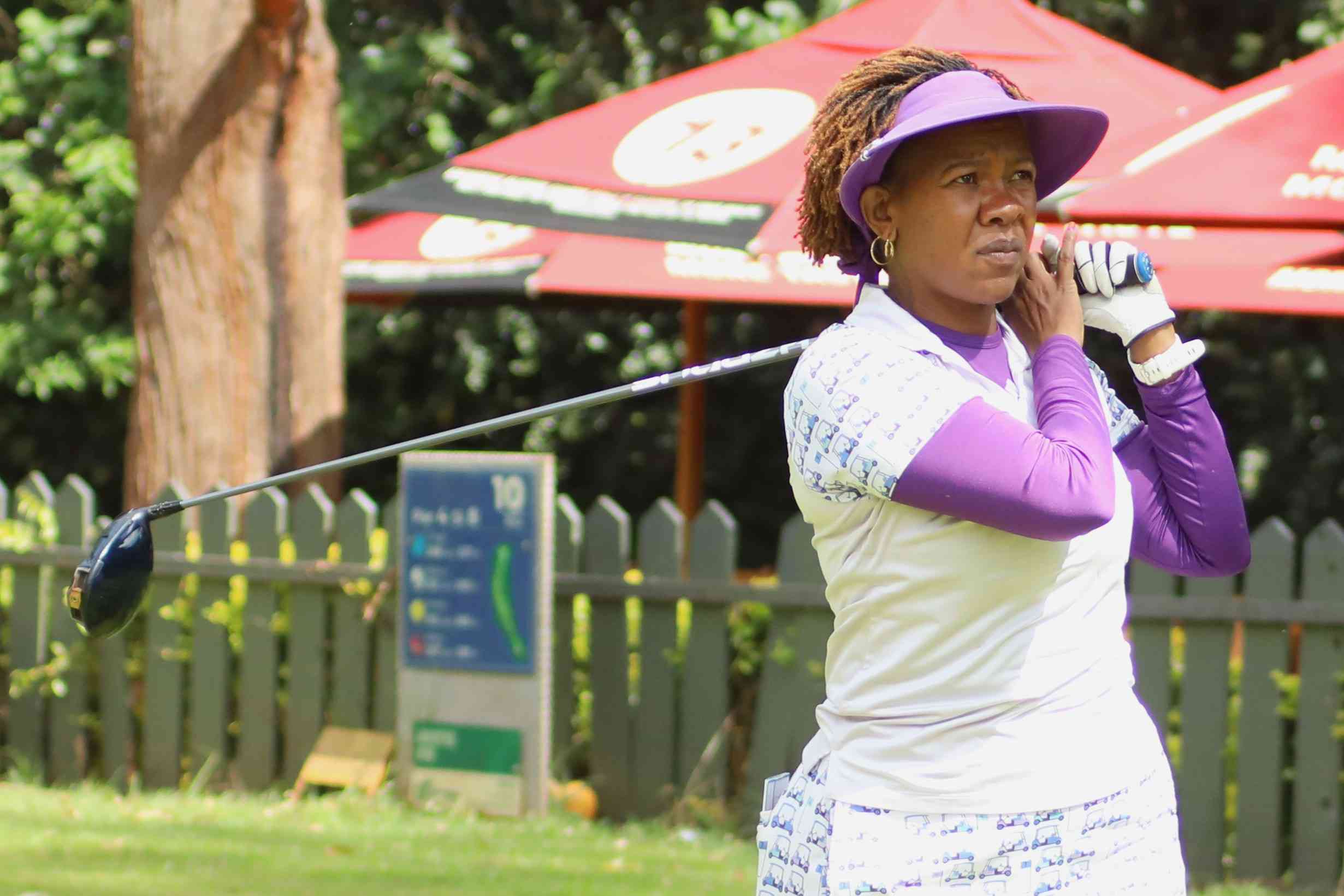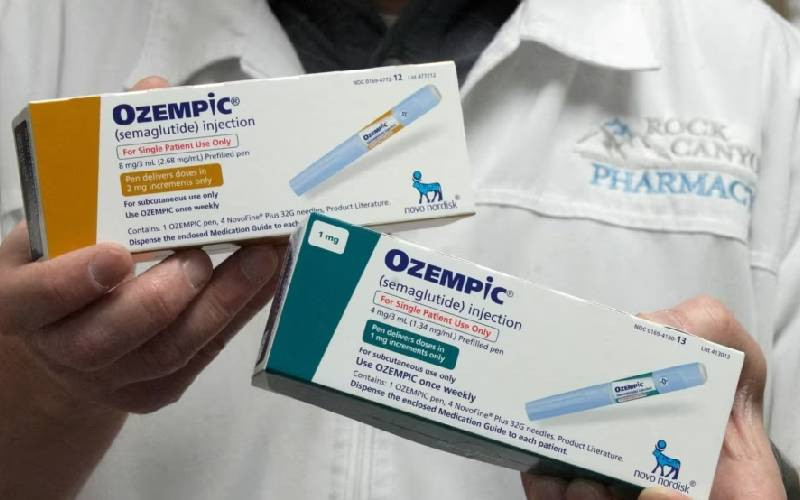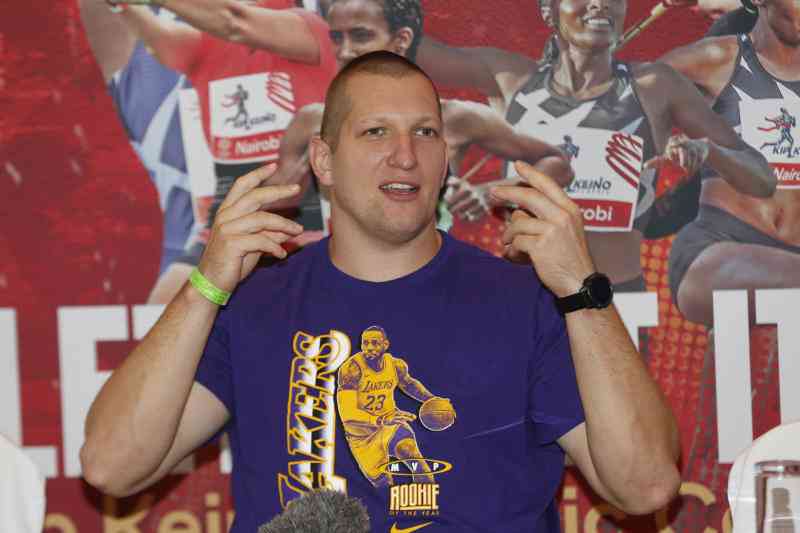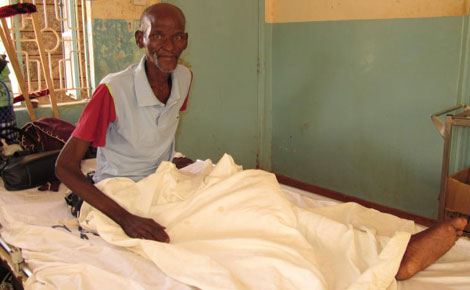 |
|
David Isoni sits on a hospital bed in the surgical ward of the Mwingi District Hospital after his right leg was amputated. [Photo: Nanjinia Wamuswa/Standard] |
An early morning routine involving letting loose his goats and driving them to the grazing field cost David Isoni his leg.
His woes began in April this year.
Mr Isoni, 64, from Migwani village in Kitui County's Mwingi West Constituency, recalls one morning when he went to let loose his five goats which slept in the kitchen, before taking them to graze.
As he untied them, one of the goats pulled a rope which had encircled his right lower limb and in the process caused him an abrasion.
As he grazed the animals, he felt a sharp pain and resolved to use some yellow sap from a tree locally known as muthulu.
"I knew this bitter sap would help because we regularly used it on wounds before. I applied it but the pain continued," he discloses.
When the pain became unbearable, Mr Isoni, a watchman at a local private business, sought medical attention at Migwani sub-District Hospital.
Here, he was treated for a week but there was no change. At this point, he sought further medical attention at Kyome private clinic, where he was diagnosed with diabetes and immediately put on medication.
"I was treated for three weeks but there was no improvement," he recalls.
As the wound continued to enlarge, Mr Isoni sought more help at Muthale Mission hospital in Kitui. He was admitted and treated for one month without success. This was in June.
Dressed wound
After being discharged, out of desperation, Mr Isoni followed the advice of a few people and started applying honey to dress his wound.
The honey medication failed, prompting him to try yet another method where he soaked the wound in a bucketful of warm salty water, which also failed.
"Some people directed me to Mwingi District hospital, saying it was the best hospital for my wound," he says.
On August 5, this year, the 64-year-old was admitted to Mwingi District hospital.
Stay informed. Subscribe to our newsletter
His wound was now so large and painful that he had to be supported to walk, after having previously spent over Sh100,000 on treatment. At the surgical ward, he was discovered not to be diabetic after various blood tests.
Blood sugar
Mwingi District Hospital Medical Officer Dr Hassan Mohamed suspects the health facility where he first sought help must have checked and found elevated blood sugar levels and concluded he was diabetic.
"When levels of blood sugar are elevated it does not always mean somebody is diabetic," Dr Hassan clarified.
After review by the consultant surgeon and other doctors, a diagnosis of necrotising fasciitis was made and the first operation done on August 7 was a below the knee amputation.
But the stump started rotting upwards as the infection continued to spread.
"To help him, there was need to have a second above the knee amputation. This was done two weeks later," said Dr Hassan.
Shockingly, the stump got worse, affecting all the surrounding soft tissue despite the second operation and other medical interventions.
Doctors once again resolved to perform a major operation - a hip joint disarticulation - on September 13 to contain the infection from spreading to his pelvic organs.
"Such a condition is caused by a Group A streptococcus bacteria, which occurs when the bacteria infect the superficial fascia, a layer of connective tissue below the skin," said the doctor.
After undergoing three operations at the Mwingi District hospital, Mr Isoni is now fit to go home.
However, he cannot walk as he did when he was admitted almost two months ago, following the hip joint disarticulation of his right limb.
He is now appealing for a wheelchair and financial assistance from well-wishers begin his new life at home.
His greatest fear is overstaying his welcome at the medical facility, which would result in a huge bill. Currently, the bill stands at about Sh80,000.
Dr Hassan said Mr Isoni is fit to leave the hospital but will continue to attend regular surgical clinics as an out-patient.
During this writer's visit to the hospital, Isoni was in bed and his wife Ndanu David beside him.
Ndanu said she has been at the hospital caring for her husband for close to two months.
"I thank God he's getting better and we can go home anytime from now, if he gets the wheelchair and we clear his hospital bills," she said.
An elated Isoni is in stable condition and thanks God for being with him through the trying moments.
"After three operations, l have seen it all," shares the father of six; four girls and two boys.
His wife now sees a tough life ahead. "He has been the breadwinner but is now without a leg, it is not going to be easy, especially because we still have a child in high school," she said. But Mr Isoni is grateful to God, the doctors and nurses.
 The Standard Group Plc is a
multi-media organization with investments in media platforms spanning newspaper
print operations, television, radio broadcasting, digital and online services. The
Standard Group is recognized as a leading multi-media house in Kenya with a key
influence in matters of national and international interest.
The Standard Group Plc is a
multi-media organization with investments in media platforms spanning newspaper
print operations, television, radio broadcasting, digital and online services. The
Standard Group is recognized as a leading multi-media house in Kenya with a key
influence in matters of national and international interest.
 The Standard Group Plc is a
multi-media organization with investments in media platforms spanning newspaper
print operations, television, radio broadcasting, digital and online services. The
Standard Group is recognized as a leading multi-media house in Kenya with a key
influence in matters of national and international interest.
The Standard Group Plc is a
multi-media organization with investments in media platforms spanning newspaper
print operations, television, radio broadcasting, digital and online services. The
Standard Group is recognized as a leading multi-media house in Kenya with a key
influence in matters of national and international interest.


